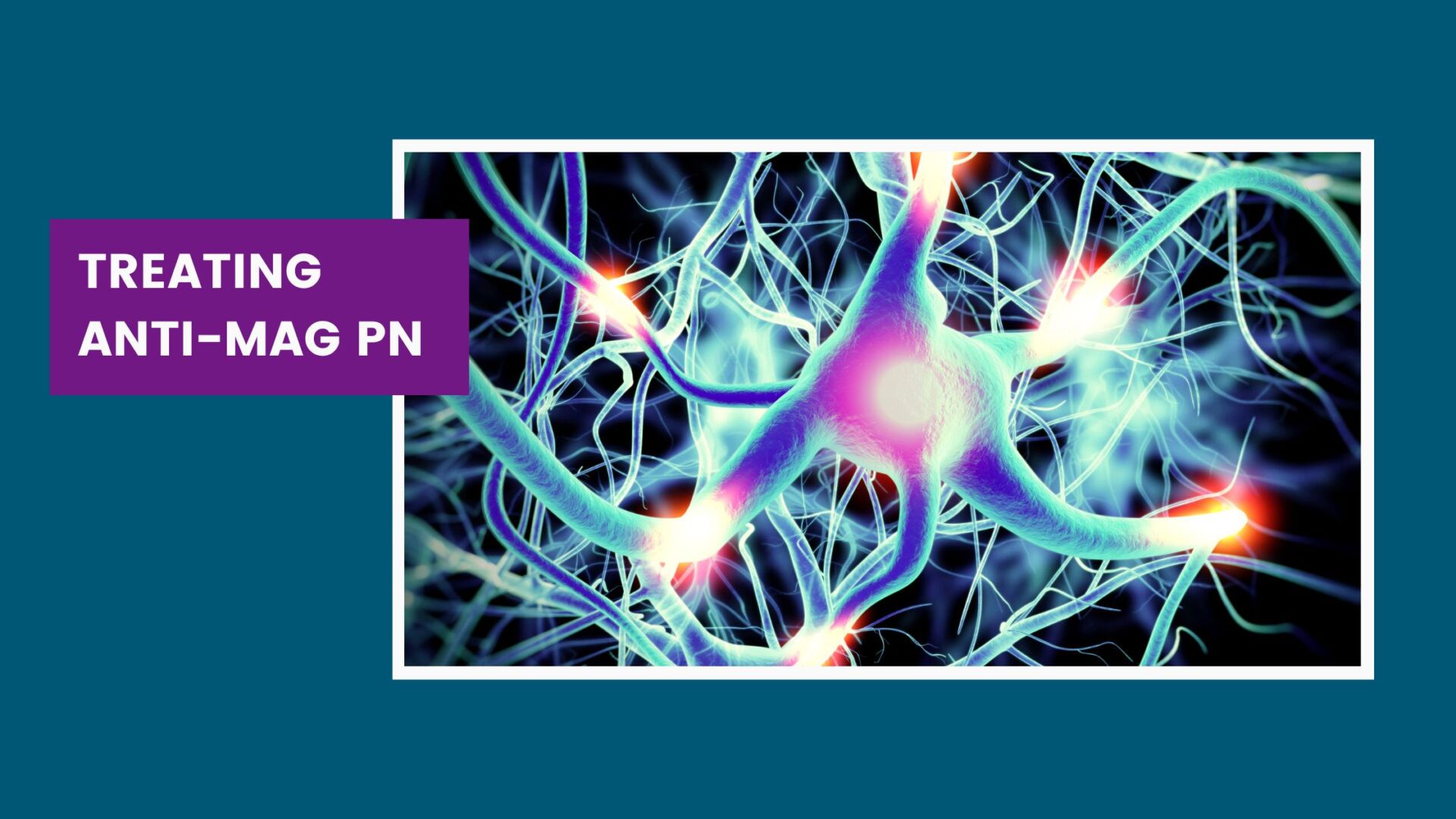TREATING ANTI-MAG PN – A LOOK BACK AND WHAT MAY BE COMING
Introduction to Anti-MAG Neuropathy
Anti-MAG neuropathy refers to a rare auto-immune associated cause of peripheral neuropathy (PN). In this case, the person’s own immune system (specifically, the IgM monoclonal antibodies) attack nerve cells required for a healthy peripheral nervous system – resulting in a slowly progressive and debilitating condition. Patients often experience loss of mobility, muscle weakness, balance, numbness and pain in varying degrees. With an estimated prevalence of only 7 per 100,000 PN patients, understanding and effectively managing Anti-MAG neuropathy require specialized knowledge and tailored treatments.
Anti–MAG Neuropathy: Where Do We Stand?
Recently, three prominent neurologists, Drs. Amro Stino (University of Michigan), Jeffrey Allen (University of Minnesota), and Bakri Elsheikh (The Ohio State University), contributed to advancing our understanding of Anti-MAG PN through a comprehensive review published in Muscle and Nerve (Wiley, July 22, 2023). Their review, titled Anti–Myelin-Associated Glycoprotein Neuropathy: Where Do We Stand?, delves into crucial aspects of the condition, including diagnosis, clinicometrics, biometrics, and treatment strategies.
Treatment Strategies and Clinical Trials
Central to their discussion are insights gleaned from controlled trials of rituximab, shedding light on the varying efficacy of this therapeutic approach. Additionally, the authors highlight the pressing need for improved clinicometrics, biomarkers, and therapeutics to address the complexities of Anti-MAG PN effectively.
Conclusion: Towards Improved Management of Anti-MAG PN
Drs. Stino, Allen, and Elsheikh conclude that “[t]here is an urgent need for improved clinicometrics, biomarkers, and therapeutics in anti-MAG neuropathy.” They note that the ongoing IMAGiNe study – currently funded in part by the Foundation for Peripheral Neuropathy – should help provide a path forward in clinical trials and practice. It is hoped that, going forward, this study will help neurologists and anti-MAG patients meet the challenges they face.






